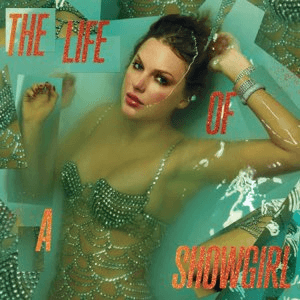Try-hard ‘Deadpool’ not especially clever, funny
2/5 stars
On Facebook the past week, I’ve seen people share an open letter to parents written as the “Deadpool” character about his new movie. In it, he warns them not to take their kids to it because it’s so twisted and offensive that they’ll write angry letters, halting production on a potential sequel.
Take your kids to something more friendly, like the upcoming “Civil War,” he says. “Deadpool” isn’t like those other superhero movies, except for the part where it totally is like those other superhero movies.
Wade Wilson is a mercenary who undergoes experimental cancer treatment that turns him into an unkillable mutant. Now, he’s trying to get revenge on the guy who did it and reunite with his girlfriend, who he’s been too afraid to approach because the treatment made him unattractive, to say the least.
For those who don’t know, the defining traits of Deadpool as a character are his predilection for ultraviolence and his tendency to break the fourth wall, delivering quips directly to the audience. People love Deadpool because that was probably a novel concept in superhero comics when they started doing it.
In the character’s debut feature film, Ryan Reynolds plays him as well as can be expected, with a nice sense of comic timing and delivery to go along with his expected exuberance. My main problem is almost none of it made me laugh.
Put simply, “Deadpool” is R-rated “Family Guy.” For the most part, actual jokes are replaced by pop culture references and cursing, which may have felt bold and original if it hadn’t been done countless other times already.
Aside from an easy-to-miss transphobic remark at Gina Carano’s expense, a fairly explicit sex montage and a couple of other bits, it’s not as edgy or offensive as it would have you believe. You probably won’t be shocked unless you’re a prude about sex or the F-word, which are commonplace in every other R-rated movie.
It’s certainly no more violent or vulgar than something like “Kick-Ass.”
For all its bluster about being unique in the genre, “Deadpool” does little to subvert its contemporaries. The plot is the same storyline we’ve seen a million times.
The opening credits replace the actors’ names with things like “A Hot Chick” and “A British Villain,” but pointing out tropes isn’t the same as challenging them. Those concepts exist in the story in the same way as the other films it lampoons.
I don’t even think every superhero movie needs to be hugely subversive, but if you’re going to talk the talk, then walk the walk. Don’t have Deadpool jokingly ask if it’s sexist to hit a female attacker while his girlfriend mostly exists to be a damsel in distress.
Truth be told, I didn’t hate “Deadpool.” Overly referential humor doesn’t work for me, but it does for loads of people, and that’s fine. It’s a matter of taste and nobody is wrong for liking or disliking it.
It’s just frustrating that a film that prides itself on its self-awareness isn’t actually self-aware where it matters most. The most remarkable thing about “Deadpool” is how unremarkable it is.







